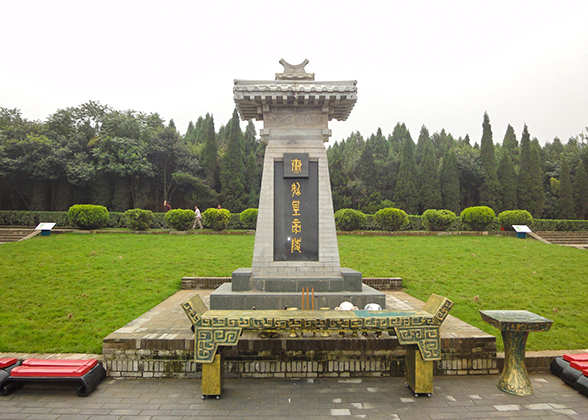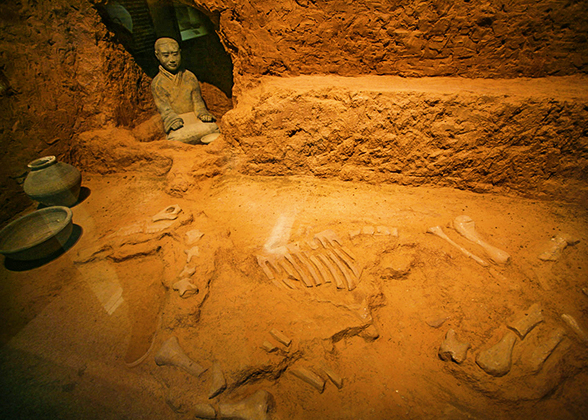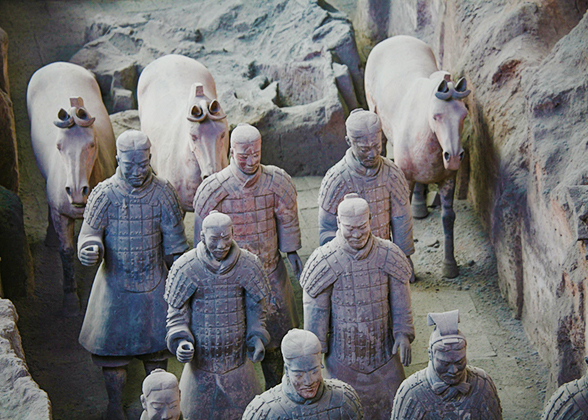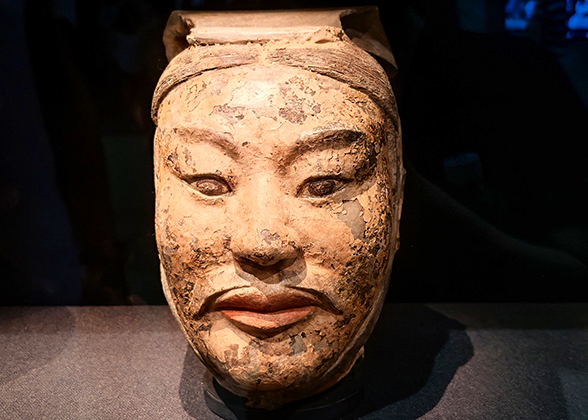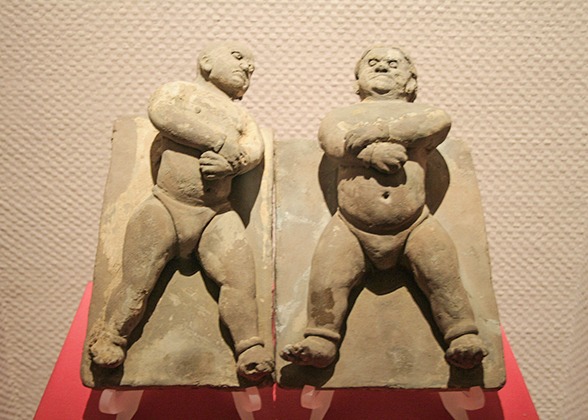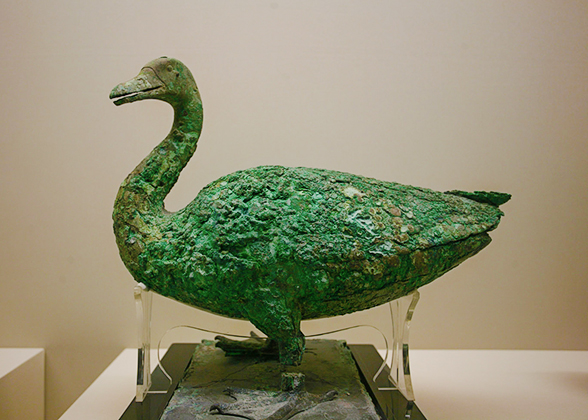Qin Shi Huang Mausoleum (Mausoleum of the First Qin Emperor)
|
|
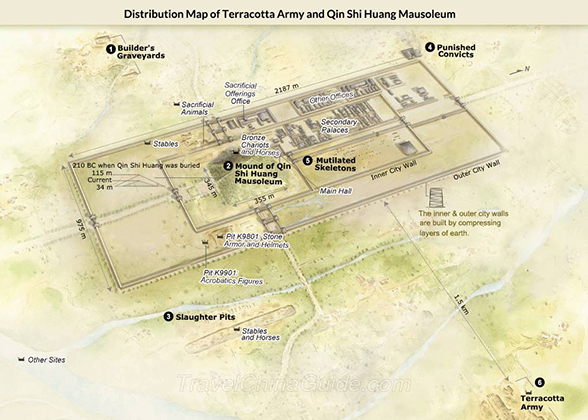 |
| Map of Qin Shi Huang's Mausoleum |
Location
Dimensions
|
|
The labourers came from three groups of people. The first were the craftsmen. The second were the prisoners. The third were the people working to repay a debt. These people had violated the rules at that time and had to pay a fine. But with no money to pay fines, they were forced to build the mausoleum. According to historical records, the mausoleum was a notorious crime scene. Many laborers died of hardship during its construction, and all the workmen were entombed along with the emperor in order to keep their mouths shut.
Also all the barren royal concubines accompanied Emperor Qin Shi Huang on his last journey.
Historical Records on Underground Palace
Sima Qian, a great historian who wrote in early Han dynasty, offered archeologists great insight on the mausoleum's construction. We learned from him that the tomb is huge. The coffin of Qin Shi Huang was cast in bronze. Underground Palace was gem-studded replica of imperial housing above ground. Moreover, booby traps with automatic-shooting arrows were installed to deter would-be tomb robbers. Heaven and earth were represented in the central chamber of the tomb. Ceiling shaped into sun, moon and stars by inlaying pearls and gems symbolizes the sky and the ground was an accumulation point of rivers, lakes and seas, like Yellow River and Yangtze River, which stands for the earth. It is said that the underground palace was brightly lit by whale oil lamps for eternity. Nowadays, the records in this book have been definitely proved right by archaeological findings and the underground palace of the tomb is presumably well preserved.
Remains of the Mausoleum
Hopefully one day, the entire mausoleum will be unearthed and displayed to the public.
|
|
How to get to Qin Shi Huang Mausoleum
Take metro line 1 to Fangzhicheng, then change to line 9 to Huaqing Pool, and transfer to Lintong Bus 602 to the Qin Bing Ma Yong (Terracotta Army Museum) stop. Or take tourism bus no. 5 (306) from Fangzhicheng Station to the Museum directly.
Take bus 307, which departs from Tangchengqiang Jiuqu Hub, and passes Tang Paradise and Big Wild Goose Pagoda. The whole line takes 2.5 hours and costs CNY 8.
From Lintong:
Take bus no.101 to Qinling Station.
Xi'an Bus Search
Getting Around:
Battery-powered motor vehicles and ancient-style carriage are available for visitors to tour around the mausoleum;
30 free shuttle buses are traveling between the Qin Shi Huang Mausoleum and the Museum of Qin Terracotta Warriors and Horses for tourists' convenience. One can take them by showing the entrance ticket.
| Admission Fee: | CNY 120; free for children under 1.4 m (4.6 ft); children taller than 1.4m and under age 16 can enjoy half-price tickets; foreign students studying in China with valid student ID can enjoy half-price tickets. |
| Opening Hours: | March 16 to November 15: sell ticket from 08:30 to 17:00, stop check-in at 18:00; November 16 to March 15: sell ticket from 08:30 to 16:30, stop check-in at 17:30 |
